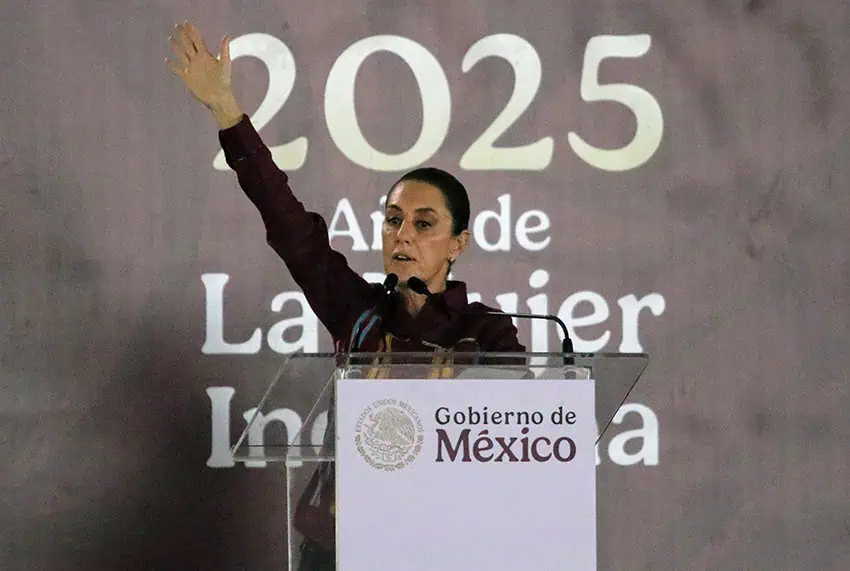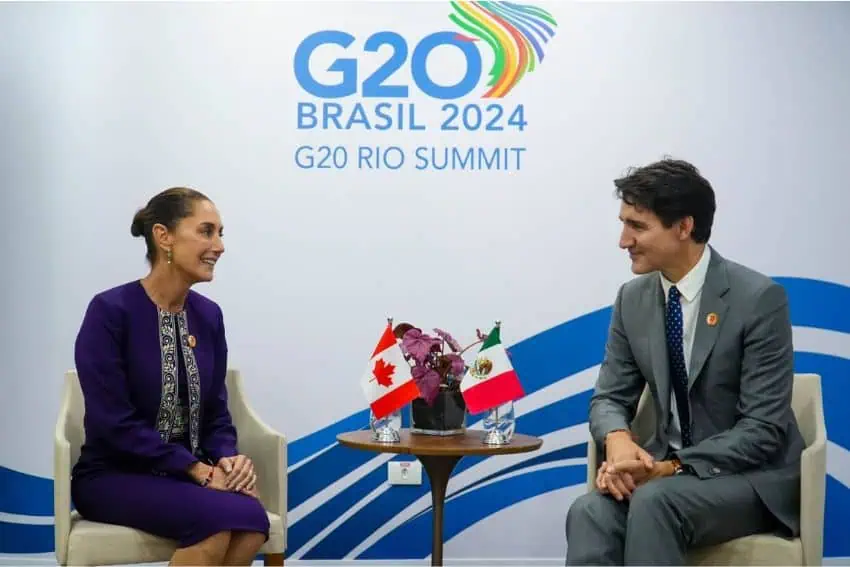Sheinbaum needs to prioritize the economy: Our CEO’s perspective

I have been optimistic about Claudia Sheinbaum as the new president. I think she has the personality, intellect and experience to be an strong leader. As I mentioned in a recent column “Claudia Sheinbaum, a case study,” she has an exceptionally difficult task to manage the initiatives begun under fromer President López Obrador, contend with a confrontational President-elect Trump, and work with Canada despite its current leadership situation. I have been more than willing to give her the benefit of the doubt so far in her presidency and recent polling with the Mexican population shows that her popularity is higher than ever.
I could go on at length about many of the important initiatives and decisions she has already made. Sheinbaum has managed the Trump and Trudeau relationships well thus far. She has taken a firm and necessary stance in several areas against China. She’s prioritized increasing minimum wage to keep up with inflation. And I like that she has started a pension program for elderly women regardless of if they worked in or out of the home. All great first steps. But this past week has brought a number of flashing red light warning signals on the economic front that concern me. I worry that the economic issues risk becoming much bigger problems if Sheinbaum doesn’t quickly take them head-on. The honeymoon is now over.

The first issue is Mexico’s gross domestic product (GDP) forecast for 2025. Both the World Bank and the United Nations predict Mexico’s GDP will grow 1.5% or less this year. (The United States GDP is projected to grow 2.5%.) Cepal, the Economic Commission for Latin America and the Caribbean, predicts Mexico’s GDP to be at only 1.2% this year. To put that in perspective, every single country in the region except for Cuba and Haiti are expected to have higher GDP growth than Mexico this year. Think about that for a moment, Mexico — which is hitting record highs of foreign direct investment, record highs of exports, a record share of U.S. imports, record tourist receipts and visitors and record remittances from Mexicans living abroad — is expected to have GDP growth this year similar to two of the slowest-growing economies on the planet.
Experts point to uncertainty from the Trump administration on the possibility of tariffs against Mexico, potential deportations, and concerns around the U.S. taking action against Mexican cartels as reasons for the low projections. All are valid concerns, but every country has their economic headwinds and yet are able to grow faster than 1%!
The second economic red light came with the terrible job creation numbers recently reported for 2024. The Mexican economy nationwide created only 214,000 jobs in the entire year — the worst since 2003 in a non-crisis year. In addition, the number of layoffs in December was the highest in three decades! Businesses clearly are not confident enough to hire right now and many are even reducing headcount.
Another economic red light came with the very sudden announcement this past weekend that Mexicana, the once-bankrupt airline resuscitated by AMLO, cut nearly 50% of its flights without warning after less than a year in business. It was a reminder of how absurd of an idea this was from the very beginning — a military-run, government-owned airline using leased airplanes in a very competitive market.


In business it’s important to always ask, “What problem is my product or service looking to solve?” and clearly that question was never asked with Mexicana. Mexico already has three very agile, competitive, customer-focused, fast-growing national airlines in Aeroméxico, Volaris and Viva Aerobus. All three airlines have been rapidly adding capacity — new airplanes and new routes — in response to record customer demand. State-run airlines — outside of a few in the Middle East or China — have tended to not be competitive with private sector airlines. Then again, Cuba has a state-run airline…
Yet another red light came at the beginning of the week with the announcement from Sheinbaum that Mexico’s first electric car, the Olinia, would debut in time for the 2026 World Cup. The project is partly government funded, and has the potential to be the poster child of poor government policy. Mexico has a thriving, world-class auto sector with the top companies from around the world already producing in Mexico or planning to soon. Several companies have announced billion-dollar investments in electric car production in Mexico in just the past year. Why on Earth would the Mexican government think that it can take on the likes of Tesla, BYD and others in electric vehicles?
We all want clean, affordable electric vehicles — but to think that a government-funded manufacturing startup is the best way to get there is pure lunacy. It shows a lack of seriousness of the administration and a complete lack of understanding and appreciation of how the free market works. I cannot help but fear that the Olinia will be the next Saturday Night Live skit as a follow up to “The Adobe.”
The previously mentioned economic red lights, along with many others, are manifesting themselves as they often do, with a rapidly devaluing Mexican peso. In many ways, as I have discussed in previous articles, a weaker peso can in fact be quite good for the Mexican economy. But the speed at which the recent devaluation has occurred, and the sheer amount of the devaluation (25% and counting) is a clear sign that investors are quickly losing faith in the economic agenda of this new administration.
I would never contend that President Sheinbaum has an easy job, or that there are quick fixes, or that she wasn’t dealt a difficult hand by her predecessor. But there are some tangible things she can do in the short term to demonstrate that she is serious about getting the economy growing at the 3-5% rate that it can and should be growing at. One could argue that Mexicana and Olinia are not significant in terms of economic impact, but I think the bigger concern is that it shows a lack of focus of the administration on things that are far more important — like job creation and GDP growth! So here are a few ideas:
- Very publicly acknowledge that 1% GDP growth is NOT acceptable and getting to 3-5% is a top priority.
- Make the politically hard (but financially very easy) decision of shutting down Mexicana airlines to send a strong signal.
- Do not get distracted with Olinia, but rather focus on supporting the automotive private sector with what they need to invest and grow in the country.
- Find ways to fast track investment from the private sector in the energy industry — especially green energy. The world is quickly realizing that the combination of data centers, AI and EVs means increased energy capacity is an urgent priority. Countries that get this right will accelerate, those that don’t will fall behind.
- Go on a very visible “listening tour” with top business leaders in the country. Secretary of Economy Marcelo Ebrard has been visibly doing this, but Sheinbaum has not made it clear that its a priority for her. Mexico has been attracting significant reinvestment foreign direct investment dollars, but new investment has been concerningly low. The administration needs to understand clearly what is needed to accelerate investments and take some tangible steps to work on those needs, ASAP.
- Get the Morena-majority Congress under control and focused on issues that directly impact economic growth.
- Balance the populist messages (many of which are good) with “Mexico is open for business and investment” messages. Populism without economic growth is a recipe for disaster.
A concern voiced by many was that Sheinbaum would end up staying in the shadow of AMLO and focusing on populist issues at the expense of economic growth. Mexico, despite all of its potential, continues to have a perception problem, appearing (to many investors) unable to get out of its own way and seize its economic opportunities. It is critical for President Sheinbaum to demonstrate otherwise quickly before the business and investment community loses its faith in the new administration.
Travis Bembenek is the CEO of Mexico News Daily and has been living, working or playing in Mexico for nearly 30 years.
Source: Mexico News Daily

